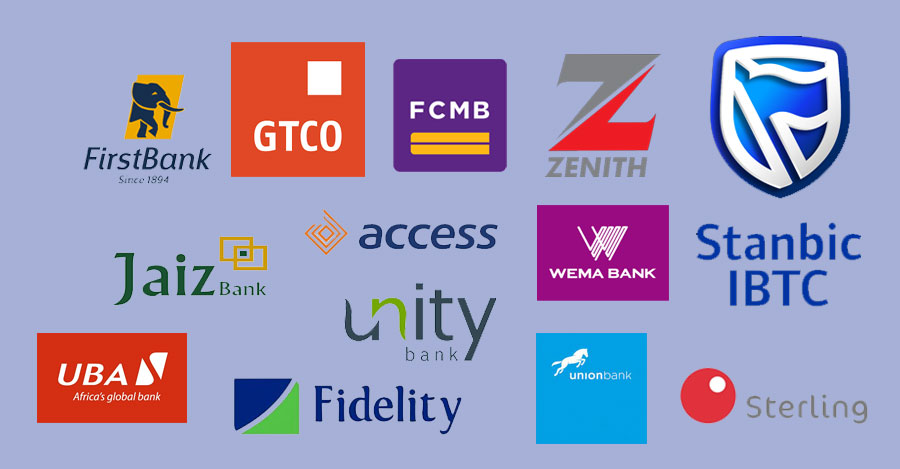Broadcasting
Bring On the CTO: Why Having a Chief Transformation Officer Makes Sense in a Post-COVID World

By Ricardo Vargas Executive Director, Brightline Initiative, PMI
The case for having a Chief Transformation Officer (CTO) has been building for years. Now, as companies undertake the difficult task of rebuilding in the wake of COVID-19, the CTO role is more important than ever.

Ricardo Vargas Executive Director _ Brightline Initiative, PMI
“Life will never be the same after COVID-19.”
You hear that a lot these days. But for many organizations, life will indeed be different in a post-COVID world. Whether they’re restructuring their supply chains, reframing their go-to-market strategies or reconsidering their office space needs, organizations rebuilding in the wake of COVID-19 will need to undergo significant transformation.
To aid in these efforts, it becomes relevant to think about formalizing the role of the Chief Transformation Officer.
The role of Chief Transformation Officer, or CTO, is tailor made for times like these. A CTO can take top management’s transformation vision and make sure it’s properly disseminated throughout the organization.
He or she can translate that vision into concrete goals. Even more important, the CTO can devise and deliver the master plan for achieving these goals—overseeing the multitude of projects that will be needed to turn the organization’s transformation strategies into reality in the post-COVID world.
A Constant State of Transformation
Even before the onset of COVID-19, however, the argument for formalizing the CTO role had been building. That’s because many organizations are already dealing with near constant transformations due to disruptive societal and technology changes. These include growing urbanization, climate change, massive demographic shifts and the revolution caused by advanced technologies like artificial intelligence, robotics and 5G.
There’s also the reality that transformations are costly, time-consuming and difficult. They tax the capabilities of even the most agile organizations. In fact, Forbes estimates that 70 percent of large-scale transformations fail to achieve their goals, resulting in a loss of approximately $900 billion in 2018 alone.
Transformations fail for a variety of reasons. Executives we spoke to as part of a 2020 Brightline study, titled Mastering Strategy Implementation in Transformative Times , cited such challenges as limited resources, insufficient technology, skill gaps among internal talent and a lack of processes for guiding strategy.
This same research—among 1,000+ C-level executives from around the world—also provides supporting evidence for the CTO role. Indeed, one of the key variables contributing to the success of a strategic transformation is strong leadership. Brightline’s years of experience in researching strategic implementation suggests that naming a CTO may be the best way of providing that leadership.
Using Standardized Processes
The CTO can serve as a catalyst for formalizing the processes used in transformation initiatives. That’s important because one of the other key variables behind a successful transformation is implementing and adhering to such standardized processes.
The CTO can bring the discipline needed to do so—helping organizations be more adaptable and allowing them to take full advantage of the technology and frameworks they already have.
Finally, having a CTO leads to greater accountability. Investing one person with the responsibility for overseeing a transformation eliminates any potential leadership gaps. It ensures that there will always be one person—the CTO—whose sole priority is the success of the transformation initiative.
Sometimes a black swan event can disrupt a trend that has been gaining momentum. In the case of the CTO role, however, the COVID-19 pandemic should accelerate that momentum. In the post-COVID world, we need to bring on more CTOs to manage the arduous task of re-building our organizations, our economies and our society.
Broadcasting
Winning the End-of-Year Market in Nigeria: Strategies for Unstoppable Growth

By Reuben Kalu
The final quarter of the year, especially November and December, is the highest-selling season for many businesses in Nigeria. Consumers are more eager to spend, festive activities drive demand, and competition among brands intensifies. The question is: how do you ensure your business doesn’t just participate, but dominates? The answer lies in strategic positioning. To attract the larger market, businesses must go beyond price slashes and quick promotions. Instead, they need to study their market, understand their target audience, and build a comprehensive marketing campaign that covers every aspect of the sales funnel.

Start with social media advertising—platforms like Instagram, Facebook, TikTok, and LinkedIn are critical to spark interest and build awareness. Then, ensure your landing pages are optimized for conversion, offering fast-loading, mobile-friendly designs with persuasive copy and clear calls-to-action. Add display marketing and retargeting so your brand stays in front of prospects even after they leave your site.
But here’s the game-changer: e-commerce integration. Nigerian consumers are increasingly shopping online, and mobile-first convenience is driving sales. Businesses that invest in seamless e-commerce platforms, smooth checkout experiences, flexible payment options, and reliable logistics will stand out. Coupling this with targeted email marketing ensures your audience receives personalized offers that feel timely and relevant.Q4 (October to December) is a golden window for Nigerian businesses. Consumer demand peaks, emotions run high, and people are more open to spending for the holidays, weddings, gifting, lifestyle upgrades, and end-of-year celebrations. Businesses that plan well now will not just attract sales, but build long-term brand loyalty.
Here’s my advice and strategy breakdown tailored for Nigerian businesses 👇
1. Study the Market & Audience Deeply
• Consumer behavior: Nigerians spend more in Nov–Dec on fashion, food, drinks, travel, gadgets, and lifestyle.
• Pain points: Price sensitivity, trust issues (original vs fake), delivery timelines, and festive discounts.
• Audience segmentation: Identify core buyers (youth, families, corporate gift buyers, professionals, event planners).
2. Positioning for Growth
💡 Stand out by being trustworthy, emotionally engaging, and present across multiple touchpoints.
Your messaging should tie into aspiration, family, gifting, and success — key emotional drivers in Nigeria’s festive season.
3. Marketing Strategies to Supercharge Growth
🔹 Social Media Adverts
• Run targeted ads on Facebook, Instagram, TikTok, and LinkedIn depending on your niche.
• Use festive creatives (end-of-year countdowns, Christmas/New Year imagery, Naija vibes).
• Focus on short videos, reels, and carousels showing real-life product usage.
🔹 Landing Page Optimization
• Create seasonal offers landing pages (e.g., “Naija December Deals” or “End-of-Year Mega Sale”).
• Make checkout easy: fast-loading, mobile-optimized, clear CTAs.
• Add urgency triggers (countdown timers, limited stock notifications).
🔹 Display Marketing
• Partner with popular blogs, lifestyle sites, and news platforms Nigerians consume daily.
• Use Google Display Ads to keep visibility high across the web.
🔹 Re-Targeting
• Many Nigerians browse without buying. Retarget via Facebook Pixel, Google Ads, or email reminders.
• Example: “Still thinking about it? Prices go up in 48 hours!”
🔹 E-Marketing (Email & WhatsApp)
• Send personalized festive newsletters (holiday gift guides, exclusive discounts).
• Use WhatsApp broadcast lists for flash sales and loyalty offers.
• Segment lists into VIP customers, dormant leads, and prospects.
🔹 Brand Messaging
• Keep your narrative emotional and festive: “Celebrate Success. Share Love. Gift Original.”
• Push authenticity, reliability, and urgency.
• Leverage Nigerian pride and relatable language.
4. Pro Tips to Dominate
• Bundle deals & gift packages: Nigerians love value. Bundle products for family & gifting.
• Leverage influencers: Micro-influencers in Nigeria drive trust faster than traditional ads.
• Customer service as a differentiator: Fast delivery, responsive WhatsApp support, no hidden charges.
• SEO + SEM: Optimize your Google presence so when people search “Best Gifts in Lagos” or “Buy Watch in Abuja,” you show up first.
Finally, sharpen your brand messaging—create campaigns that evoke emotions, highlight your unique value, and position your brand as the first choice for holiday spending. When combined, these efforts don’t just drive end-of-year sales; they build loyalty, expand market share, and create momentum for the new year. The brands that win this season are those that take a 360-degree marketing approach—where social media, e-commerce, advertising, funnels, and storytelling work together to supercharge growth.
✅ Bottom Line:
To win in November & December, businesses in Nigeria must build a full-funnel campaign — from awareness (social ads, display) to consideration (landing pages, retargeting) to conversion (email/WhatsApp, strong CTAs) and loyalty (after-sales experience).
This is how you not only sell more but also own your market space going into 2026.
Broadcasting
N21trn Illusion: How Banks’ Appetite for Government Debt Chokes Growth

By Blaise Udunze
In a healthy economy, banks serve as the arteries through which capital flows to productive enterprises, creating jobs, stimulating innovation, and driving national prosperity. In Nigeria, however, the reverse has become true as the financial system now thrives not by financing growth, but by funding government deficits. It is an irony where banks grow richer as the economy grows weaker.

Government securities such as FGN Bonds, Treasury Bills, and Open Market Operation (OMO) Bills that were once meant to manage liquidity or finance short-term fiscal gaps have now become the lifeblood of Nigeria’s banking profitability. These instruments are considered risk-free and are backed by the full faith of the federal government. With the Central Bank of Nigeria (CBN) consistently raising interest rates to attract foreign capital and tame inflation, the yields on these securities have remained highly attractive, making them an irresistible refuge for banks seeking easy profits without the burden of lending risks.
The appeal is understandable with guaranteed returns without the uncertainties of default, collateral disputes, or policy instability. In contrast, lending to the private sector, especially manufacturing, agriculture, and SMEs, comes with high default rates, weak collateral frameworks, and volatile market conditions. Facing these odds, banks have turned away from real-sector lending, preferring to feed off the government’s insatiable appetite for domestic borrowing.
Monetary policy has only deepened this pattern. The CBN’s tightening stance, reflected in elevated Monetary Policy Rates (MPR) and Cash Reserve Ratios (CRR), has made commercial lending less attractive. When interest rates rise, so do returns on T-bills and bonds, prompting banks to reallocate capital toward government securities. Moreover, regulatory provisions permit banks to count government securities as part of their liquidity ratio, making the choice both profitable and compliant.
Macroeconomic instability, exchange rate volatility, inflation, and unpredictable fiscal direction further discourage long-term private lending. At the same time, many small and medium enterprises lack the collateral or formal structures required to access loans. Even when eligible, the prohibitive cost of borrowing, often above 27 percent, makes credit commercially unviable.
According to the CBN’s Financial Stability Report (2023), Nigerian banks held over N21 trillion in government securities, which was more than 40 percent of their total assets. Between 2020 and 2024, the Nigerian Economic Summit Group (NESG) observed that banks’ exposure to government instruments grew by 20-25 percent annually, while credit to the real sector expanded by less than 10 percent. The message is clear, revealing that the banking system has become addicted to sovereign debt.
Recent disclosures from the country’s largest banks provide empirical evidence of this troubling trend.
– UBA’s H1 2025 interim report shows gross earnings of N1.61 trillion, with interest income of N1.33 trillion. Remarkably, N1.29 trillion of that interest income, which is nearly the entire figure, came from investment securities (amortised cost and FVOCI). This means the bank’s earnings were driven overwhelmingly by returns from government instruments rather than productive lending.
– Access Holdings, in its FY 2024 report, noted that improved yields were “supported by higher returns from investment securities and fixed-income trading activities,” confirming that the bulk of its profit growth came from government instruments rather than credit expansion.
– GTCO’s FY 2024 and H1 2025 statements similarly highlighted higher yields on fixed-income securities and FX revaluation gains as major profit drivers, again underscoring the dominance of non-lending income sources.
– Zenith Bank’s investor updates for FY 2024 and Q1 2025 openly stated that “deliberate exposure to government securities boosted earnings,” pointing to a strategic shift toward sovereign debt holdings as a core profit engine.
The data reveals a uniform pattern across Nigeria’s banking industry: profits are being driven by government securities and FX-related gains, not by lending that creates jobs or stimulates production. In UBA’s case, interest from securities alone almost matched its total interest income, illustrating how lending has become a marginal activity. Access, Zenith, and GTCO’s disclosures also confirm that 2024 and early 2025 profitability was underpinned by investment securities and trading gains, which is a model that rewards financial inertia rather than developmental impact.
This trend has far-reaching implications. When banks channel funds toward government debt instead of private enterprise, the productive sector suffers chronic credit starvation. Nigeria’s private-sector credit-to-GDP ratio, hovering around 15-18 percent, pales in comparison to over 100 percent in developed economies and 45-60 percent in emerging markets. With limited access to capital, businesses shrink, factories close, and unemployment deepens. The economy becomes trapped in a cycle of low productivity, weak growth, and worsening inequality.
While banks celebrate record profits, those profits are increasingly disconnected from the real economy. This “risk-free banking” model may appear sound, but it is economically corrosive. It fuels short-term gains at the expense of long-term growth and exposes the system to sovereign risk. Should the government’s fiscal position deteriorate or interest rates spike further, the value of these securities could plummet, leaving banks overexposed and vulnerable.
The CBN has tried to correct course through its Loan-to-Deposit Ratio (LDR) directive, mandating that at least 65 percent of deposits be lent to the real sector. But compliance has been inconsistent and often artificial. Some banks engage in creative accounting or short-term consumer loans to meet the benchmark, without truly supporting productive sectors. The real challenge lies in policy incoherence when a government is too dependent on domestic borrowing and a regulatory environment that fails to reward productive risk-taking.
Nigeria’s financial system urgently needs to return to its primary role: fueling enterprise, not feeding bureaucracy. The government must reduce its borrowing appetite through fiscal discipline and tax reforms. The CBN should create a balanced incentive framework that rewards real-sector lending through credit guarantees, differentiated reserve requirements, and stable macroeconomic policies.
For banks, the call is moral, strategic, and patriotic. True banking is not merely about profit maximization but about building the foundation of national prosperity. The health of the sector depends on the strength of the economy it serves.
Nigeria cannot continue banking on the wrong side of growth. Every Treasury Bill purchased instead of a manufacturing loan and every bond bought in place of agricultural credit widens the gulf between financial success and economic failure. It is time for a reset to make banking once again the engine of real growth, not a spectator profiting from decline.
Blaise, a journalist and PR professional writes from Lagos, can be reached via: blaise.udunze@gmail.com
Broadcasting
FG-backed mortgage reforms help over 700 Nigerians become homeowners in 6 months

More than 700 Nigerians have successfully transitioned from renters to homeowners within six months, following the implementation of landmark mortgage reforms spearheaded by the Federal Government through the Ministry of Finance Incorporated (MOFI).

The milestone, announced on Tuesday, marks a significant shift in Nigeria’s housing sector, which has long faced challenges including high interest rates, limited financing options, slow mortgage processing, and a housing deficit exceeding 28 million units.
Central to this transformation is the MOFI Real Estate Investment Fund (MREIF), a Securities and Exchange Commission (SEC)-registered ₦1 trillion fund designed to provide long-term, affordable mortgages to ordinary Nigerians.
The fund offers interest rates as low as 9.75 percent per annum and repayment periods of up to 20 years, making homeownership more accessible than ever.
At full utilization, MREIF aims to enable at least 12,000 Nigerians to own homes, with additional refinancing support planned through the Nigerian Mortgage Refinancing Company.
For decades, many Nigerians have been trapped in a cycle of rent payments, often described as “funding their landlord’s retirement.” Now, with MREIF, homebuyers can secure loans and move into their own homes within weeks.
Since its launch, MREIF has disbursed funds to over 700 homebuyers through 11 Eligible Financial Institutions across five regions of the country.
These institutions, licensed by the Central Bank of Nigeria and preapproved by MREIF, include Abbey Mortgage Bank, Access Bank, AG Mortgage Bank, FCMB, FHA Mortgage Bank, Gateway Mortgage Bank, Globus Bank, Homebase Mortgage Bank, Imperial Homes Mortgage Bank, Infinity Trust Mortgage Bank, Living Trust Mortgage Bank, Nigeria Police Mortgage Bank, Providus Bank, Stanbic IBTC, and Union Bank. Each mortgage represents a family moving from rent into ownership, building equity, stability, and generational wealth.
The Federal Government committed ₦150 billion under Series 1 funding, fully subscribed in December 2024, while private sector investors added another ₦100 billion under Series 2. Additional tranches could scale the fund to ₦1 trillion, ensuring long-term sustainability.
The fund is professionally managed by ARM Investment Managers, with a structure anchored in public–private collaboration to ensure affordability, transparency, and efficiency.
Wale Odutola, CEO of ARM HoldCo, said MREIF embodies the kind of partnership Nigeria has long needed—government resolve combined with private sector rigour.
He added that together with MOFI, they are laying the structural foundation for a housing sector that rewards citizens, unlocks investor confidence, and drives inclusive growth.
Beyond individual mortgages, MREIF also offers offtake guarantees to developers, encouraging new construction projects, creating jobs, and strengthening the housing supply chain. Nigerians in the diaspora now have a transparent, government-backed platform to invest in secure homeownership.
Despite challenges such as inflation, forex volatility, and high construction costs, MREIF’s long-term financing model is designed to withstand economic shocks. As more financial institutions, pension funds, and developers join the initiative, thousands more Nigerians—both at home and abroad—are expected to benefit.
The message is clear: the era of affordable homeownership has arrived in Nigeria. With Federal Government backing and private sector management, MREIF is not just a housing scheme—it is a national economic reform poised to reshape lives and communities across the country.

 Telecom2 days ago
Telecom2 days agoAkwa Ibom, T2 Set to Drive Digital Transformation

 E-Business2 days ago
E-Business2 days agoKaspersky, Partners Launch a Career Orientation Test to Inspire more Girls into Cybersecurity

 E-Financial2 days ago
E-Financial2 days agoAfDB to Lend Nigeria $500m in Fresh Budget Support

 Telecom2 days ago
Telecom2 days agontel Gets Fresh Capital Injection for 2026 Relaunch

 E-Financial2 days ago
E-Financial2 days agoCBN Releases New Guidelines, Caps POS Agent Daily Transactions at N1.2m

 Telecom1 day ago
Telecom1 day agoChronicles Software unveils free SuccessBOX.ng platform for SS3 students, announces ₦10m reward scheme

 E-Financial2 days ago
E-Financial2 days agoFidelity Bank Hosts Black-Tie Gala Honouring Afreximbank President Prof. Benedict Oramah

 E-Financial2 days ago
E-Financial2 days agoReps Plan to Regulate Cryptocurrency, PoS Operations



























